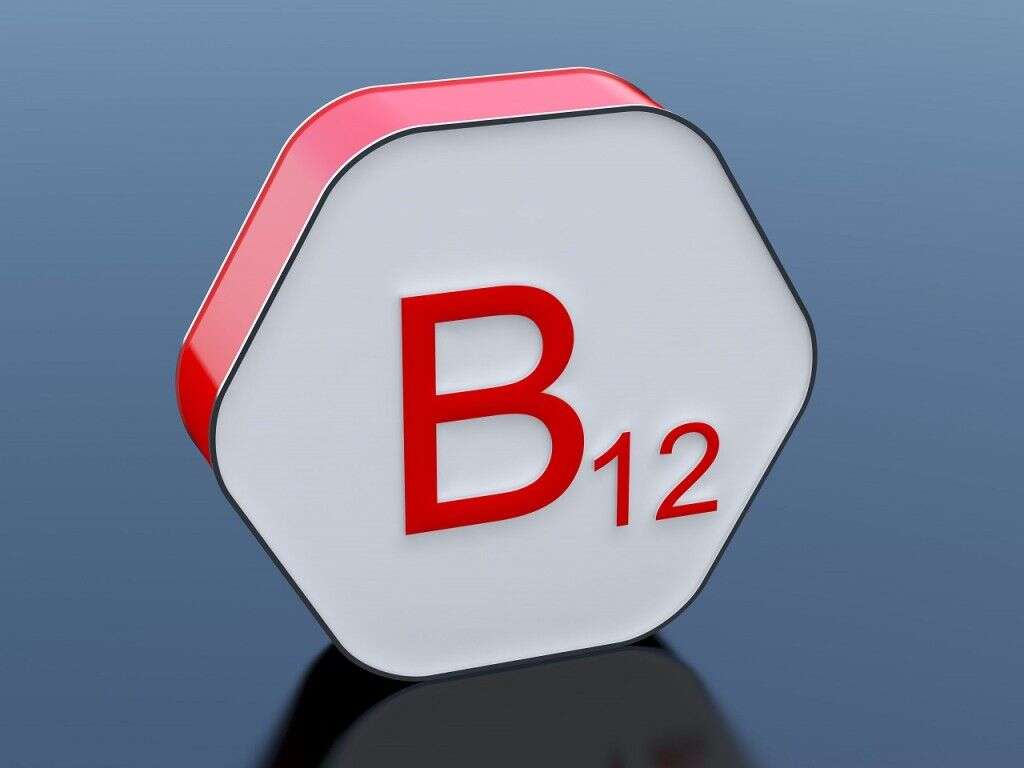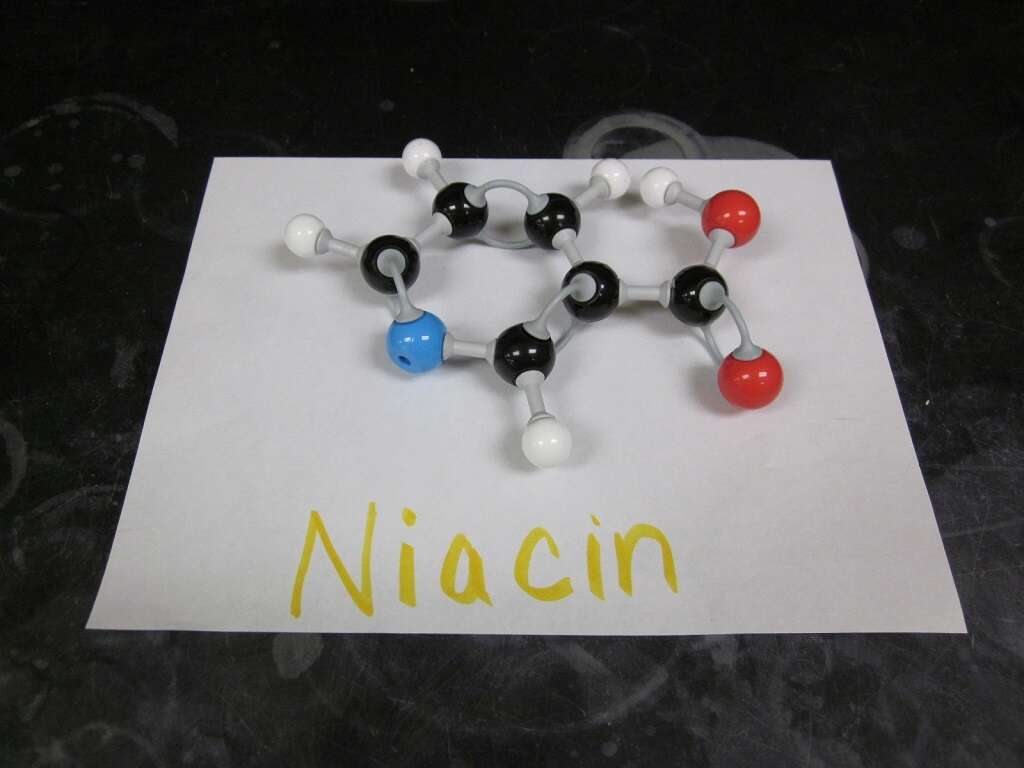Thiamine Deficiency Signs, Symptoms and More
 Article Sources
Article Sources
- 1. Osiezagha, Kenneth C, et al. 'Thiamine Deficiency and Delirium.' Innovations in Clinical Neuroscience, Matrix Medical Communications, Apr. 2013, www.ncbi.nlm.nih.gov/pmc/articles/PMC3659035
- 2. Liu M;Alimov AP;Wang H;Frank JA;Katz W;Xu M;Ke ZJ;Luo J; 'Thiamine Deficiency Induces Anorexia by Inhibiting Hypothalamic AMPK.' Neuroscience, U.S. National Library of Medicine, pubmed.ncbi.nlm.nih.gov/24607345.
- 3. Hammond, Nancy, et al. 'Nutritional Neuropathies.' Neurologic Clinics, U.S. National Library of Medicine, May 2013, www.ncbi.nlm.nih.gov/pmc/articles/PMC4199287
- 4. BL;, Gratton SM;Lam. 'Visual Loss and Optic Nerve Head Swelling in Thiamine Deficiency without Prolonged Dietary Deficiency.' Clinical Ophthalmology (Auckland, N.Z.), U.S. National Library of Medicine, pubmed.ncbi.nlm.nih.gov/24899800
- 5. BL;, Gratton SM;Lam. 'Visual Loss and Optic Nerve Head Swelling in Thiamine Deficiency without Prolonged Dietary Deficiency.' Clinical Ophthalmology (Auckland, N.Z.), U.S. National Library of Medicine, pubmed.ncbi.nlm.nih.gov/24899800
Thiamine, also known as Vitamin B1, is one of the eight B vitamins that are essential for human health. Thiamine is used by cells to convert food to usable energy.1Osiezagha, Kenneth C, et al. ‘Thiamine Deficiency and Delirium.’ Innovations in Clinical Neuroscience, Matrix Medical Communications, Apr. 2013, www.ncbi.nlm.nih.gov/pmc/articles/PMC3659035 The human body cannot produce thiamine, so it's important to take in enough of the nutrient from food. Vitamin B1 is found in nuts, whole grains and meat, so deficiency is rare in the Western world.
Thiamine deficiency can cause a variety of symptoms. However, these symptoms are subtle and commonly associated with other minor ailments, so the deficiency is sometimes overlooked.

Reduced Appetite
Loss of appetite or anorexia is an early sign of thiamine deficiency. Thiamine is thought to regulate hunger cues by acting on a special area of the brain called hypothalamus.2Liu M;Alimov AP;Wang H;Frank JA;Katz W;Xu M;Ke ZJ;Luo J; ‘Thiamine Deficiency Induces Anorexia by Inhibiting Hypothalamic AMPK.’ Neuroscience, U.S. National Library of Medicine, pubmed.ncbi.nlm.nih.gov/24607345. The hypothalamus controls many functions, including the sense of hunger and satiety.
People who have a thiamine deficiency may find they no longer feel hungry, even if they are eating less than they normally would. Studies conducted on rats and mice have found that supplementing thiamine intake to correct any deficiency typically restores food intake back to more normal levels quickly.

Increased Irritability
Frustration, agitation and irritability are thought to be symptoms of thiamine deficiency. However, this symptom is sometimes overlooked because irritability can be caused by stress, lack of sleep, premenstrual syndrome and many other conditions.
Researchers have found that irritability can sometimes appear within days or weeks of a person developing a thiamine deficiency.3Hammond, Nancy, et al. ‘Nutritional Neuropathies.’ Neurologic Clinics, U.S. National Library of Medicine, May 2013, www.ncbi.nlm.nih.gov/pmc/articles/PMC4199287 This symptom is noticeable in children who have this deficiency, but it may also appear in adults.

Slow Reflexes
Long-term thiamine deficiency may cause a person's reflexes to become impaired. This is caused by the motor nerves becoming damaged. If the deficiency is not corrected, the reduction in reflexes may become permanent.
In the early stages, a person may have reduced reflexes of the knee, triceps and ankle. As the condition progresses, a person may experience reduced coordination skills and could find that simple tasks, such as walking, become more difficult.

Persistent Fatigue
Fatigue or lasting tiredness is a common issue with a variety of possible causes. Fatigue caused by thiamine deficiency could be slight, or it may manifest as severe exhaustion and a total lack of energy, depending on the severity of the deficiency.
Thiamine helps convert food into energy. Someone with a thiamine deficiency may be undernourished because they're not getting the full energy benefit of the food they're consuming, especially if they also have a reduced appetite.

Pins and Needles/Tingling Sensations
Pins and needles, or a feeling of dead, numb or tingling limbs, are known as paresthesia. Many people experience tingling if they sit still in an awkward position for extended periods of time, cutting off circulation to their extremities.
Thiamine deficiency can cause pins and needles because the nerves in the extremities rely on thiamine to function properly. If the thiamine deficiency is allowed to continue for a long time, the damage to the nerves could become long lasting.

Blurred Vision
Just as the peripheral nerves rely on thiamine, so does the optic nerve. Thiamine deficiency can cause the optic nerve to swell, and severe cases can cause optic neuropathy, resulting in blurred vision or even blindness.
Many people with a thiamine deficiency find that their vision improves when the deficiency is resolved through supplementation.4BL;, Gratton SM;Lam. ‘Visual Loss and Optic Nerve Head Swelling in Thiamine Deficiency without Prolonged Dietary Deficiency.’ Clinical Ophthalmology (Auckland, N.Z.), U.S. National Library of Medicine, pubmed.ncbi.nlm.nih.gov/24899800 The longer the deficiency goes undetected, the greater the risk of long-lasting or permanent damage to the optic nerve.

Dizziness
Some people with thiamine deficiency develop an abnormally slow heart rate. This means their heart cannot pump blood effectively enough to support normal day-to-day movement and activity. A slow heart rate can lead to dizziness and lightheadedness, which may increase a person's risk of fainting.
Dizziness is commonly associated with many other conditions and is frequently overlooked as a potential sign of thiamine deficiency. However, if combined with other symptoms, such as blurred vision or pins and needles, it may be a more clear sign.

Feeling Weaker Than Usual
Muscle weakness is another symptom of thiamine deficiency. The weakness is caused by cells having difficulty obtaining energy from food. It may also be related to nerve damage from the deficiency.
If muscle weakness is caused by thiamine deficiency, supplementing with this nutrient will help improve the symptoms, and most people find that their strength starts returning. It may take a while to get back up to full strength, but the more promptly thiamine deficiency is managed, the faster the recovery is likely to be.

Feeling Sick
Nausea and vomiting are less common than other symptoms of thiamine deficiency, but some individuals experience it. This symptom is more common in infants than in adults. Infants who are fed thiamine-lacking baby formula may be more susceptible to deficiency.5BL;, Gratton SM;Lam. ‘Visual Loss and Optic Nerve Head Swelling in Thiamine Deficiency without Prolonged Dietary Deficiency.’ Clinical Ophthalmology (Auckland, N.Z.), U.S. National Library of Medicine, pubmed.ncbi.nlm.nih.gov/24899800
Nausea and vomiting caused by thiamine deficiency typically passes once the deficiency has been corrected through supplementation or a change in diet. This symptom can be unpleasant, but it is usually only temporary.

Delirium
Confusion and delirium are serious issues that may occur in people who have a severe thiamine deficiency. Delirium is particularly common in older individuals who have nutritional deficiencies, and it may also occur in those who are thiamine-deficient due to alcohol abuse.
Delirium makes it hard for people to think clearly, and some people may experience hallucinations. Delirium is a dangerous symptom that requires immediate intervention from a medical professional.










